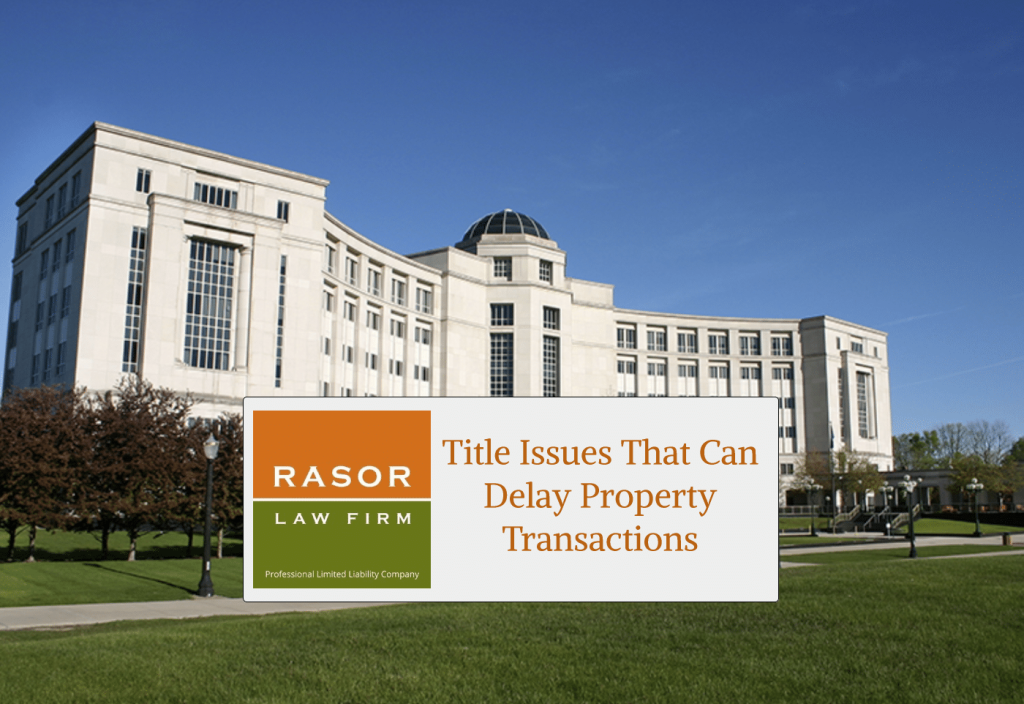Closing on a new home should be a moment of excitement, not frustration. Unfortunately, Title Issues Property problems can turn an otherwise smooth real estate transaction into a stressful and prolonged ordeal. Whether you’re buying your first home or selling a long-held property, title complications can stall closing dates by weeks or even months. It’s disheartening to plan a life around a move-in date, only to have it pushed back unexpectedly due to legal issues lurking within property records. Title issues can affect your peace of mind, financial plans, and even access to loans. Worse yet, they can be entirely invisible until a thorough title search reveals the problem late in the process. Taking the time to understand these barriers and how they can be addressed is essential for anyone navigating Michigan’s real estate landscape. This article aims to shed light on common title issues, how they arise, and what you can do to prevent or manage them effectively.
What Are Title Issues in Real Estate Transactions
Title issues in property transactions refer to legal complications that affect a property’s ownership history and can delay or even derail a sale. When individuals refer to Title Issues Property, they are talking about anything that compromises a clear, legally recognized transfer of ownership from seller to buyer. These issues often surface during the title search, which is the legal review of a property’s records before closing.
Some common title issues include unknown liens, boundary disputes, or errors in public records. For example, if a previous owner failed to pay a contractor, that contractor may have filed a lien that wasn’t resolved. If this lien is still attached to the property, the buyer inherits that debt upon purchase. In another scenario, imagine two neighbors disagreeing over where the lot line lies. This can result in a boundary dispute, preventing the sale from moving forward until it’s resolved.
Title issues can also stem from incorrect legal descriptions or forged documents in the property’s historical record. These documents might misstate ownership, leading to questions over who truly holds the right to sell. The consequences of unresolved title problems can range from delayed closings to costly legal battles, making it essential for buyers and sellers to be proactive.
Why It’s Important to Address Title Problems Early
Failing to identify or resolve Title Issues Property early in the real estate process can have far-reaching consequences for both buyers and sellers. It can introduce uncertainty, stress, and significant financial costs. For buyers, title problems can lead to the unfortunate discovery that they do not have full or legal ownership of the property after purchase. For sellers, unresolved title defects can chase away potential buyers or delay the sale indefinitely.
Delays caused by title problems are not just frustrating; they can also affect financing, moving schedules, and contractual penalties. Title concerns can even expose both parties to additional legal risk. By understanding these potential problems and initiating a title review early, parties can avoid making hasty decisions based on incomplete information.
- Scenario 1: A tax lien is discovered after the buyer signs a purchase agreement. The sale stalls and may fall through entirely.
- Scenario 2: A boundary dispute requires a new survey and legal resolution. The resolution process adds weeks—sometimes months—to the closing timeline.
- Scenario 3: A missing heir makes a claim on the property. Legal ownership is contested, preventing the transaction from closing until the matter is settled by a court.
Breaking Down the Title Issue Process in Michigan
- Step 1: A title search is ordered through a title company or attorney. This search reviews the public records to confirm legal ownership and discover any potential issues.
- Step 2: If the search reveals any problems such as liens or missing signatures, the title company compiles a report known as a “title commitment.” This outlines prerequisites that must be resolved before closing.
- Step 3: Any issues identified must be resolved before the closing. This could involve paying off old debts, updating documents, or obtaining court orders to remove clouds on the title.
Practical Tips for Handling Title Complications
Answers to Common Questions About Michigan Title Issues
How Rasor Law Firm Helps You Navigate Title Challenges
At Rasor Law Firm, our team is committed to making real estate transactions as seamless and secure as possible. With years of experience in Michigan real estate law, we specialize in identifying, interpreting, and resolving complex title issues. Whether you’re buying or selling, we take a proactive approach to prevent issues before they derail your objectives. Our attorneys work closely with title companies, real estate agents, and clients to ensure legal compliance and resolution of disputes. From reviewing old deeds to negotiating lien resolutions, we handle it all with precision and transparency. What sets Rasor Law Firm apart is our commitment to communication and protection. We keep you informed at every step and tailor legal solutions to your situation. When title problems arise, having Rasor Law Firm in your corner means peace of mind and minimal disruption to your plans.


